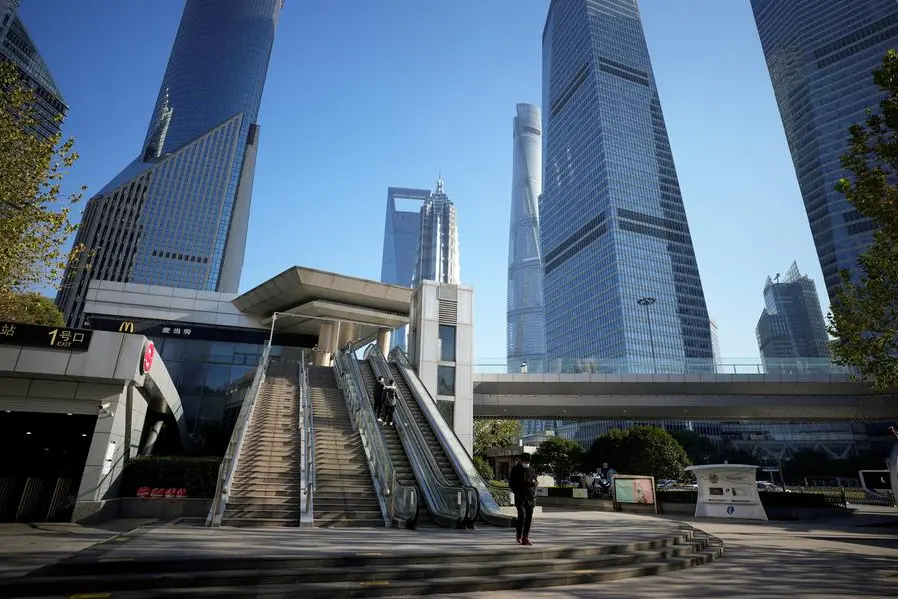PHOTO
BEIJING - China's central bank will take further measures to boost market confidence and increase support for manufacturers and small companies, a top official said on Friday, as hopes grow that the COVID-hit economy will stage a solid rebound this year.
But Xuan Changneng, a deputy governor of the People's Bank of China (PBOC), reiterated a long standing line that monetary policy will be appropriate and not take the form of "flood-like" stimulus, in comments at a news conference in Beijing.
Beijing's sudden decision to abandon its "zero-COVID" policy last month has prompted analysts' upgrades of its economic outlook and a jump in Chinese financial markets, but businesses have struggled with rising infections across their production lines, suggesting a bumpy recovery in the near term.
Factory activity in China shrank for the third straight month in December, and at the sharpest pace in nearly three years, according to the National Bureau of Statistics' latest reading of the official purchasing managers' index (PMI).
Market confidence has taken a hit in recent months, with a sharp contraction in the country's property sector, which accounts for a quarter of the economy, exacerbating strains brought on by the spread of COVID.
The PBOC also said on Friday that it will take steps to improve the cash flows of high-quality property developers, in the latest official moves to get the sector back on more stable footing.
Zou Lan, head of the monetary policy department, said that the central will roll out new structural policy tools to support the property market.
Economists are hopeful that consumer confidence will bounce back as China re-opens, with pent-up demand driving an uptick in imports in particular. The PBOC expects inflation to remain moderate over 2023, however, with Zou adding that China should guard against imported inflation.
PBOC officials also indicated that a lengthy crackdown on the technology sector could wind down further, with the bank pledging it will support the development of online platform companies once they have resolved some small problems. The clampdown was one of the factors that led to heavy selling of Chinese tech shares by local and foreign investors.
(Reporting by Joe Cash and Kevin Yao, Editing by Raissa Kasolowsky and Kim Coghill )





















